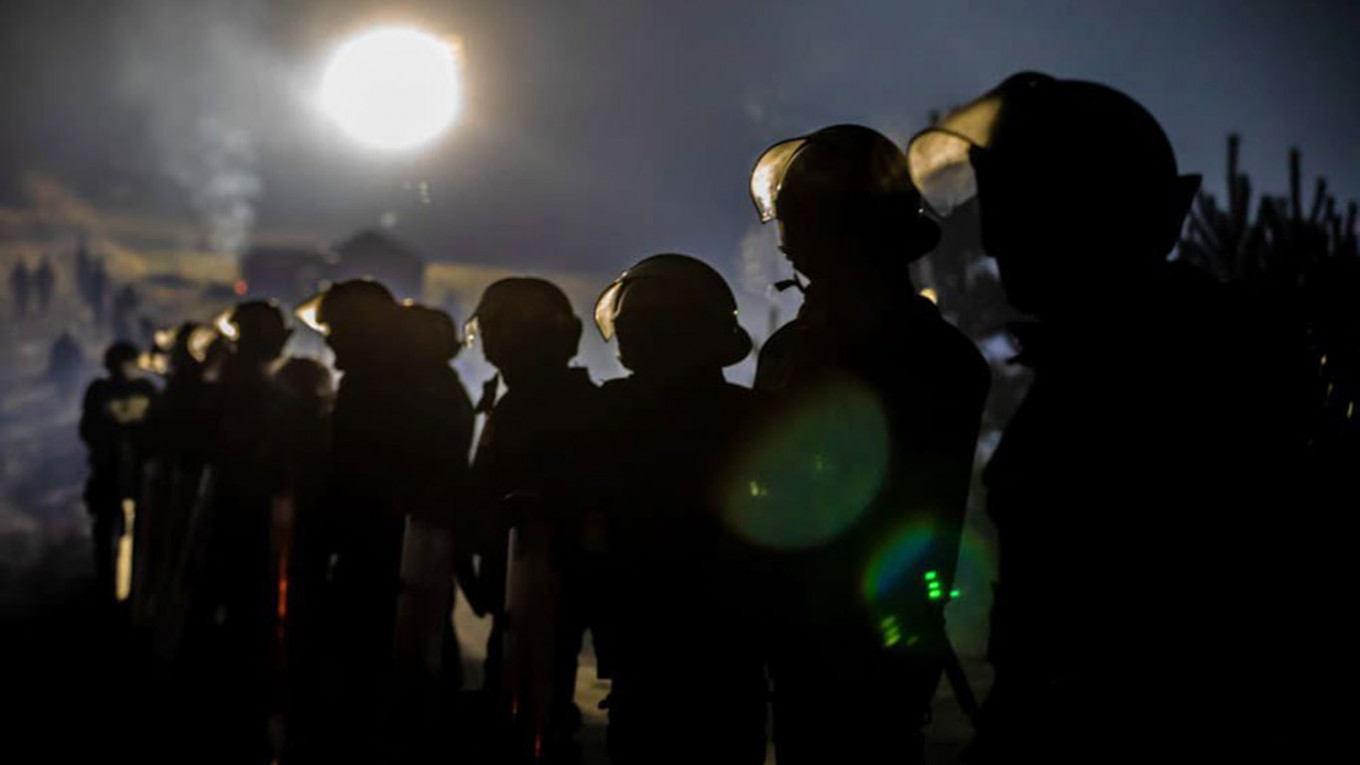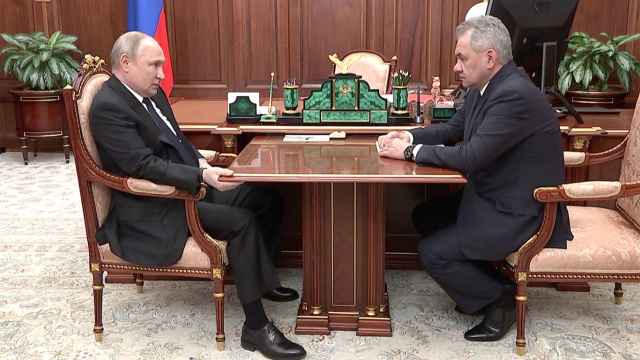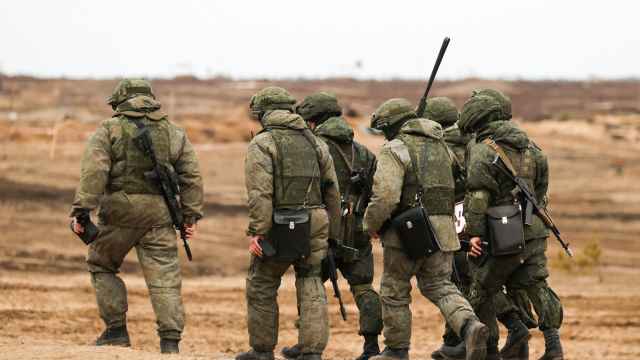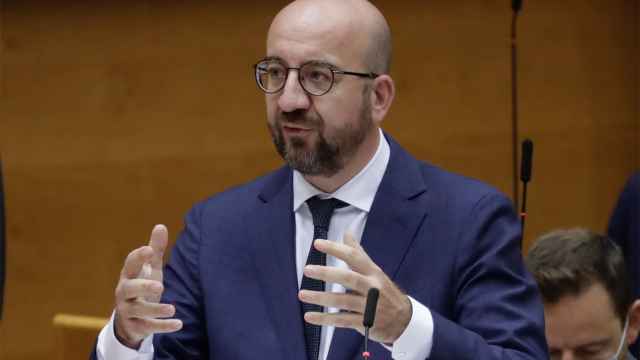Tensions have gripped the European Union’s eastern borderlands many times over the past two decades. But those of the past two weeks are unprecedented. For the first time, all three Eastern Slavic states — Belarus, Russia and Ukraine — are simultaneously involved. And the range of issues in play — military power, energy trade and migrant flows — is wider than ever. The region has become complex, unpredictable and increasingly dangerous.
Two factors drive this. First, despite his suppression of last year’s nationwide demonstrations, Alexander Lukashenko knows that Belarus is not stable. Infuriated and threatened by the West’s sanctions and refusal to recognise him as president, he is seeking to intimidate rather than, as after previous crackdowns, restore relations with the West. The artificial migrant crisis, and empty threat to cut gas transit, reveal the futile desperation of an insecure despot whose judgement is deserting him. The Belarusian regime, long a dictatorship, is becoming a pariah.
The second source of instability is Russia’s growing dissatisfaction with the status quo in Ukraine. Russia does not want to “freeze” the conflict it has fueled, but force further change. But while Russia remains publicly committed to the Minsk agreements — which according to its interpretation would federalize Ukraine and deepen Russian influence — it has no peaceful way to achieve this. Russia’s extraordinary decision, in breach of protocol, to publish recent correspondence with France and Germany suggests it is losing interest in diplomacy. Nor will its military buildup on Ukraine’s border by itself change minds in Berlin, Paris or Washington, let alone in Kiev.
Russia’s only option is therefore a new military escalation. This would incur significant casualties and severe economic and financial sanctions. Yet Western leaders cannot assume that Putin weighs the risks as they might do in his shoes. His recent 5,000-word essay “On the historical unity of Russians and Ukrainians” points to ambitions that extend well beyond the matters addressed in the Minsk Agreements.
Lukashenko’s struggle for survival and Putin’s designs on Ukraine are not only destabilising but connected. Despite their difficult relationship, Putin has a compelling interest in supporting Lukashenko: A free Belarus would not only seek better relations with the EU and Ukraine, but present the threat of a democratic example to Russia, as Ukraine’s revolutions in 2004 and 2014 did. Joint paratrooper exercises near the Polish border, Russia’s symbolic support with nuclear bomber overflights and the precedent of Russia’s own fabricated migrant crisis against Norway and Finland in 2015-16 all point to links between Russian and Belarusian policies. Russia will also study reactions to Belarus’s actions to gauge Western resolve.
Recent events have already produced significant effects. First, they show that Belarus and Russia can seize the initiative, threaten the status quo and precipitate crises that quickly become militarized. Second, they pose fresh tests for sanctions, a key Western policy tool. New EU measures seek to close down the complex supply chain of travel agencies, visa services and flights that enables Belarus to turn migrant misery into a novel form of de facto aggression against its neighbours. The West also seeks to use the prospect of severe future sanctions against Russia to avert a new invasion of Ukraine.
Concerted campaign
Third, they mark the latest phase in a concerted Russian campaign of pressure against Europe that began soon after the Biden administration took office. In February, Russia threatened to cut off relations with the EU and humiliated High Representative Josep Borrell during his visit to Moscow. In April it conducted a massive troop buildup on Ukraine’s border. Last month it refused to supply extra gas to alleviate a temporary shortage, while suggesting that final approval of the Nord Stream 2 gas pipeline would resolve this.
Russia could have reassured Europe of its reliability as a supplier by offering additional volumes — a smart move that might have eased Nord Stream 2 approval. Putin instead chose pressure over reassurance. He has since told the Foreign Ministry that Russia’s recent actions have produced a “certain tension” that “should be maintained as long as possible.”
There is little sign that Russia seeks the “stable and predictable” relationship that America hopes for, and still less that Belarus will cease causing trouble for Europe. On the contrary, a volatile mix of revanchism, insecurity, irrationality and military force is fueling tension and turbulence in the region. At worst, this could lead to the most serious crisis in Russian-Western relations in 40 years.
A Message from The Moscow Times:
Dear readers,
We are facing unprecedented challenges. Russia's Prosecutor General's Office has designated The Moscow Times as an "undesirable" organization, criminalizing our work and putting our staff at risk of prosecution. This follows our earlier unjust labeling as a "foreign agent."
These actions are direct attempts to silence independent journalism in Russia. The authorities claim our work "discredits the decisions of the Russian leadership." We see things differently: we strive to provide accurate, unbiased reporting on Russia.
We, the journalists of The Moscow Times, refuse to be silenced. But to continue our work, we need your help.
Your support, no matter how small, makes a world of difference. If you can, please support us monthly starting from just $2. It's quick to set up, and every contribution makes a significant impact.
By supporting The Moscow Times, you're defending open, independent journalism in the face of repression. Thank you for standing with us.
Remind me later.








